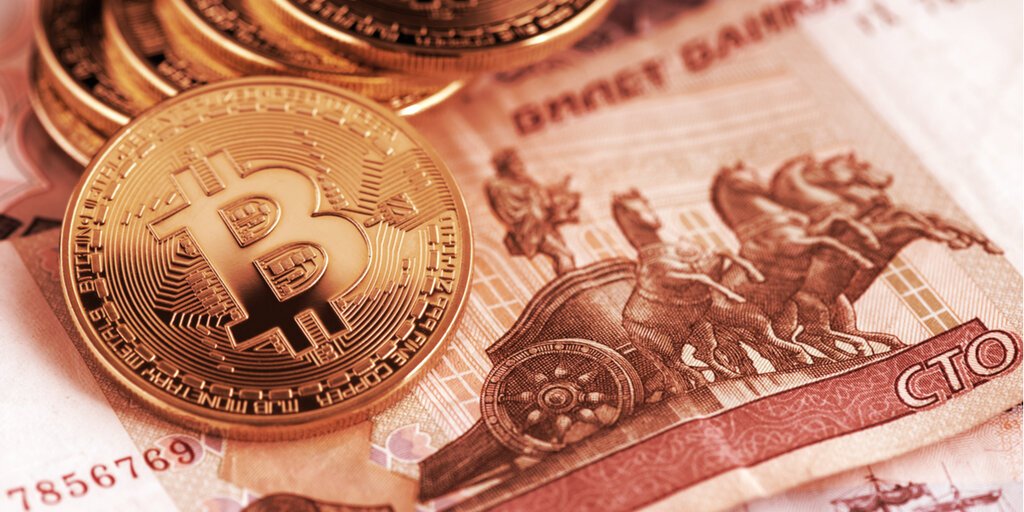In brief
Russia’s energy and oil production is keeping the country’s economy afloat as it contends with sanctions.
Vladimir Putin said “unfriendly countries” must pay for energy in rubles.
Pavel Zavalny has indicated that Turkey and China can use Bitcoin.
You know how the old “Sound of Music” song goes: “How do you solve a problem like international sanctions because everybody’s mad at you for invading Ukraine?”
Bitcoin, apparently.
Pavel Zavalny, the chairman of the Russia’s State Duma Committee on Energy, said during a videotaped press conference this week that the country would accept Bitcoin for its energy exports.
According to a translated transcript, Zavalny said the West would either need to pay for oil using rubles or gold, while allies or neutral countries such as China and Turkey can settle in rubles or their native currencies. He then added: “You can also trade Bitcoins.”
Sanctions from the U.S., Europe, and countries such as Japan and South Korea have taken a toll on the Russian economy. The ruble lost half of its value against the U.S. dollar after the invasion, according to The Washington Post—though it’s now back to around just 30% lower than its pre-war standing.
But oil and gas has provided the country with a lifeline. Russia exports roughly 10% of the world’s oil—and about 40% of European natural gas originates in the country. While the U.S. and U.K. have taken their business elsewhere, other countries are hesitant to fully detach from the Russian pump. That gave President Vladimir Putin the confidence this week to demand “unfriendly countries” pay for the commodity in rubles to shore up the national currency.
Zavalny’s pronouncement puts a twist on that, though it’s not readily apparent whether the offer to accept Bitcoin extends to the sanctioning coalition or just to China and Turkey.
But it’s something to keep an eye on. BlackRock CEO Larry Fink wrote in an investor letter Thursday that the war in Ukraine “will prompt countries to re-evaluate their currency dependencies” and consider digital alternatives.
Either way, it’s a bad look for Bitcoin, which has been scrutinized for its perceived ability to help Russia evade sanctions and other economic consequences for its military actions. However, Chainalysis co-founder Jonathan Levin told Congress in mid-March, “We have not seen evidence of Russia or Putin systemically using cryptocurrencies to evade sanctions.” Bitcoin’s large digital paper trail (viewable on any public block explorer), combined with insufficient liquidity, makes it very difficult to move billions of dollars.
Until the West firms up its energy stance toward Russia—it’s on the agenda for a meeting between President Biden and European leaders Thursday in Brussels—nothing is stopping its gas producers from getting paid in BTC.
The best of Decrypt straight to your inbox.
Get the top stories curated daily, weekly roundups & deep dives straight to your inbox.




